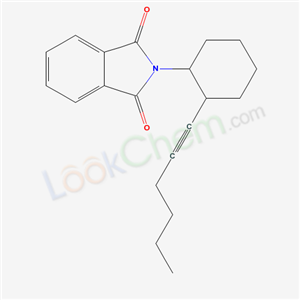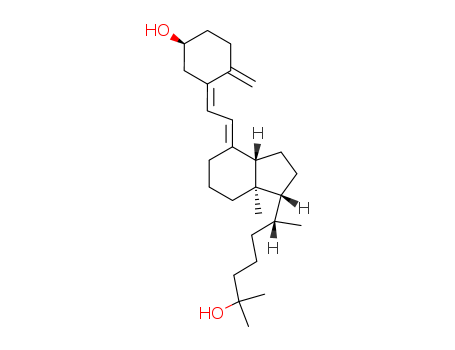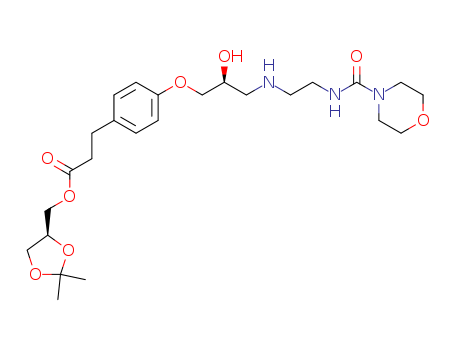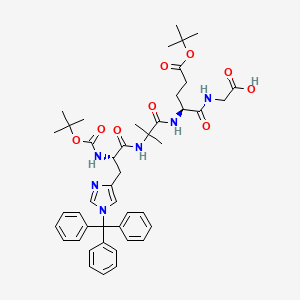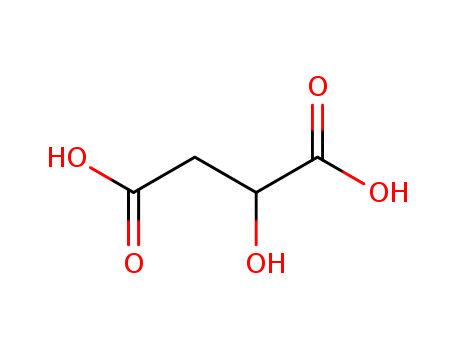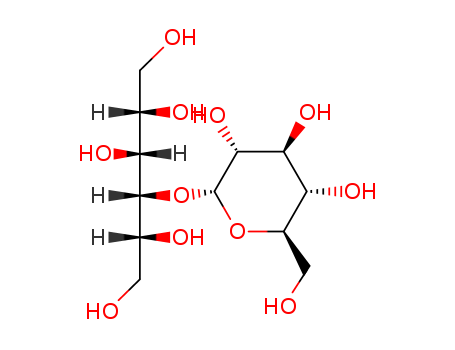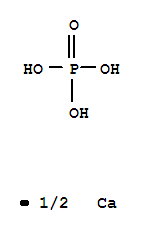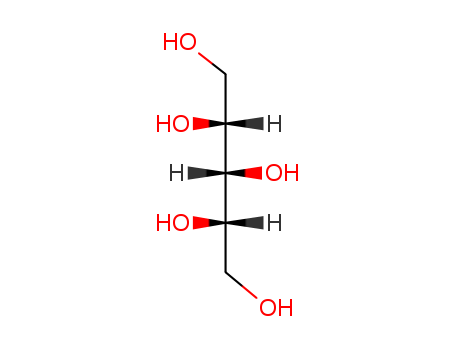
Product Details
Buy Reliable Quality Xylitol 87-99-0 of Top Purity 99% in Fast Shipping
- Molecular Formula:C5H12O5
- Molecular Weight:152.147
- Appearance/Colour:white crystalline powder
- Vapor Pressure:0.329Pa
- Melting Point:94-97 °C(lit.)
- Refractive Index:1.3920 (estimate)
- Boiling Point:494.5 °C at 760 mmHg
- PKA:13.24±0.20(Predicted)
- Flash Point:261.9 °C
- PSA:101.15000
- Density:1.525 g/cm3
- LogP:-2.94630
Xylitol(Cas 87-99-0) Usage
|
Description |
Xylitol is a naturally occurring five carbon sugar alcohol, equivalent to sucrose in sweetness. Xylitol finds applications in the preparation of confectionaries, chewing gum, toothpaste and mouthwashes. Xylitol is a low-energy sweetener with insulin independent metabolism, making it a promising alternative for sugar in diabetic patients. Xylitol is a natural anticaries agent used in the treatment of dental caries, as it is not utilized by cariogenic bacteria creates a starvation effect on them. Xylitol prevents otitis and upper respiratory tract infections. Commercially, microorganisms like bacteria, fungi and yeasts produce xylitol by fermentation. |
|
Uses |
Xylitol is a polyhydric alcohol that is a natural sugar substitute commercially made from xylan-containing plants (birch) hydrolyzed to xylose. It is as sweet as sucrose, dissolves quickly, and has a negative heat of solution which results in a cooling effect. it has 24 kcal/g. It is used in chewing gum, throat lozenges, and chocolate. Xylitol is used as a noncariogenic sweetening agent in a variety of pharmaceutical dosage forms, including tablets, syrups, and coatings. |
InChI:InChI=1/C5H12O5/c6-1-3(8)5(10)4(9)2-7/h3-10H,1-2H2/t3-,4+,5+
87-99-0 Relevant articles
Improved xylitol production from d-arabitol by enhancing the coenzyme regeneration efficiency of the pentose phosphate pathway in Gluconobacter oxydans
Li, Sha,Zhang, Jinliang,Xu, Hong,Feng, Xiaohai
, p. 1144 - 1150 (2016)
Gluconobacter oxydans is used to produce...
Synthesis of xylitol by reduction of xylulose with the combination of hydrogenase and xylulose reductase
Hasumi, Fumihiko,Teshima, Chitoku,Okura, Ichiro
, p. 597 - 598 (1996)
Xylitol synthesis by reduction of xylulo...
Novel enzymatic method for the production of xylitol from D-arabitol by Gluconobacter oxydans.
Suzuki, Shun-ichi,Sugiyama, Masakazu,Mihara, Yasuhiro,Hashiguchi, Ken-ichi,Yokozeki, Kenzo
, p. 2614 - 2620 (2002)
Microorganisms capable of producing xyli...
Poly (styrene-co-divinylbenzene) amine functionalized polymer supported ruthenium nanoparticles catalyst active in hydrogenation of xylose
Mishra, Dinesh Kumar,Dabbawala, Aasif Asharaf,Hwang, Jin- Soo
, p. 52 - 55 (2013)
Poly (styrene-co-divinylbenzene) amine f...
Catalytic hydrogenation of xylose to xylitol using ruthenium catalyst on NiO modified TiO2 support
Yadav, Mithilesh,Mishra, Dinesh Kumar,Hwang, Jin-Soo
, p. 110 - 116 (2012)
The activity of Ru catalyst on a new cla...
Efficient D-Xylose Hydrogenation to D-Xylitol over a Hydrotalcite-Supported Nickel Phosphide Nanoparticle Catalyst
Yamaguchi, Sho,Mizugaki, Tomoo,Mitsudome, Takato
, p. 3327 - 3331 (2021)
The hydrogenation of D-xylose is an indu...
Selective Hydrogenation of Xylose to Xylitol over Co/SiO2 Catalysts
Audemar, Ma?té,Ramdani, Wahiba,Junhui, Tang,Raluca Ifrim, Andreea,Ungureanu, Adrian,Jér?me, Fran?ois,Royer, Sébastien,de Oliveira Vigier, Karine
, p. 1973 - 1978 (2020)
Xylose can be selectively converted to x...
The Hofer-Moest decarboxylation of d-glucuronic acid and d-glucuronosides
Stapley, Jonathan A.,BeMiller, James N.
, p. 610 - 613 (2007)
Research was undertaken to effect the ox...
Transaldolase/glucose-6-phosphate isomerase bifunctional enzyme and ribulokinase as factors to increase xylitol production from D-arabitol in Gluconobacter oxydans
Sugiyama, Masakazu,Suzuki, Shun-Ichi,Tonouchi, Naoto,Yokozeki, Kenzo
, p. 2524 - 2532 (2003)
Xylitol production from D-arabitol by th...
One-pot selective conversion of hemicellulose (Xylan) to xylitol under mild conditions
Yi, Guangshun,Zhang, Yugen
, p. 1383 - 1387 (2012)
Something from nothing: Hemicellulose is...
Spectroscopic characterization and cytotoxicity assessment towards human colon cancer cell lines of acylated cycloartane glycosides from Astragalus boeticus L.
Graziani, Vittoria,Esposito, Assunta,Scognamiglio, Monica,Chambery, Angela,Russo, Rosita,Ciardiello, Fortunato,Troiani, Teresa,Potenza, Nicoletta,Fiorentino, Antonio,D'Abrosca, Brigida
, (2019)
In several European countries, especiall...
Ru/TiO2-catalysed hydrogenation of xylose: The role of the crystal structure of the support
Hernandez-Mejia, Carlos,Gnanakumar, Edwin S.,Olivos-Suarez, Alma,Gascon, Jorge,Greer, Heather F.,Zhou, Wuzong,Rothenberg, Gadi,Raveendran Shiju
, p. 577 - 582 (2016)
Effective dispersion of the active speci...
A unique xylose reductase from Thermomyces lanuginosus: Effect of lignocellulosic substrates and inhibitors and applicability in lignocellulosic bioconversion
Zhang, Meng,Puri, Adarsh Kumar,Wang, Zhengxiang,Singh, Suren,Permaul, Kugen
, p. 374 - 381 (2019)
In this study, the xylose reductase gene...
Ce promoted Cu/γ-Al2O3 catalysts for the enhanced selectivity of 1,2-propanediol from catalytic hydrogenolysis of glucose
Balachandran Kirali, Arun Arunima,Marimuthu, Banu,Sreekantan, Sreejith
, (2022/03/31)
Ce promoted Cu/γ-Al2O3 catalysts were pr...
Efficient Synthesis of Sugar Alcohols over a Synergistic and Sustainable Catalyst
Lin, Lu,Qiu, Jiarong,Sun, Yong,Tang, Xing,Zeng, Xianhai,Zhang, Liangqing
, p. 2467 - 2476 (2021/07/16)
A series of catalysts were prepared for ...
Elucidating the effect of solid base on the hydrogenation of C5 and C6 sugars over Pt–Sn bimetallic catalyst at room temperature
Tathod, Anup P.,Dhepe, Paresh L.
supporting information, (2021/05/19)
Conversion of sugars into sugar alcohols...
Unexpected reactivity related to support effects during xylose hydrogenation over ruthenium catalysts
Fongarland, Pascal,Freitas, Victoria D. S.,Paez, Ana,Philippe, Régis,Veyre, Laurent,Vilcocq, Léa
, p. 39387 - 39398 (2021/12/27)
Xylose is a major component of hemicellu...
87-99-0 Process route
-
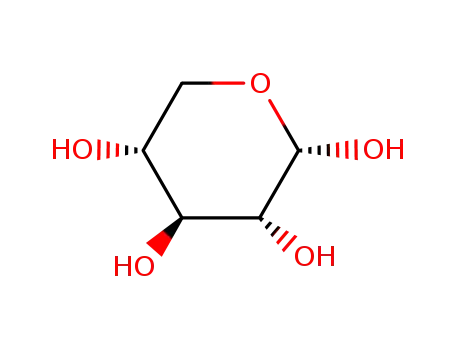
- 6763-34-4
D-xylose

-

- 87-99-0
XYLITOL

-
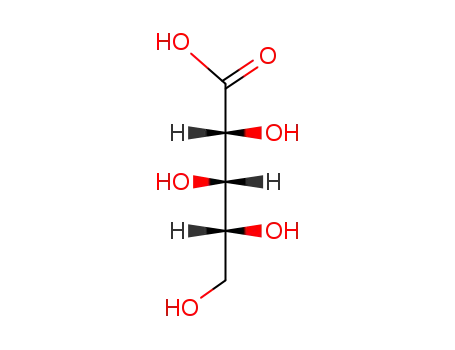
- 488-30-2,526-91-0,526-92-1,608-53-7,642-98-8,4172-43-4,4172-44-5,13171-74-9,13752-83-5,17812-24-7,17828-56-7,20663-19-8,28223-40-7
D-xylonic acid
| Conditions | Yield |
|---|---|
|
With hydrogen; sponge type Raney nickel type catalyst; In water; at 65 - 120 ℃; for 2.25 - 2.33333h; pH=4 - 6; Product distribution / selectivity;
|
-
α-cellulose
-
α-cellulose

-
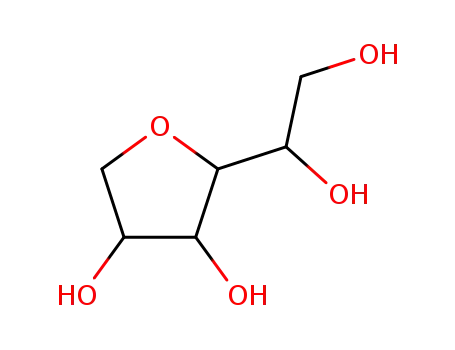
- 20662-31-1
1,4-sorbitan

-
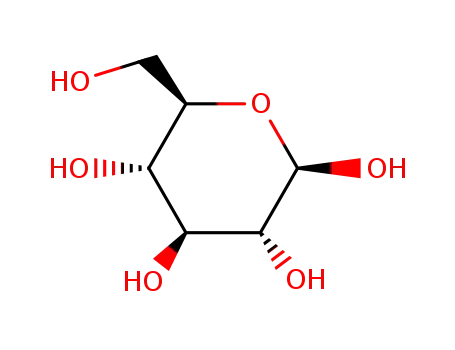
- 492-61-5
β-D-glucose

-
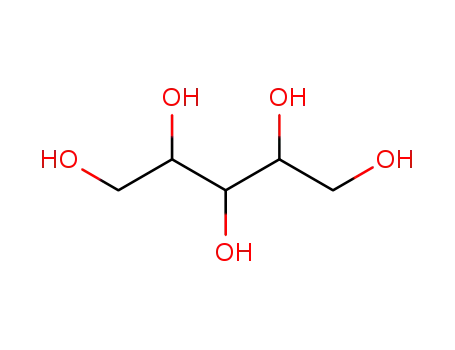
- 87-99-0,488-81-3,488-82-4,2152-56-9,6917-36-8,7643-75-6
1,2,3,4,5-pentahydroxy-pentane

-

- 50-70-4,69-65-8,87-78-5,133-43-7,488-44-8,488-45-9,608-66-2,643-01-6,643-03-8,5552-13-6,6706-59-8,24557-79-7,25878-23-3,26566-34-7,45007-61-2,60660-56-2,60660-57-3,60660-58-4,132747-27-4
sorbitol
| Conditions | Yield |
|---|---|
|
With sulfuric acid; 5% active carbon-supported ruthenium; water; hydrogen; tungsten; at 159.84 ℃; for 1h; under 37503.8 Torr; Autoclave;
|
87-99-0 Upstream products
-
58-86-6

D-xylose
-
609-06-3

L-xylose
-
15384-37-9

D-xylono-1,4-lactone
-
50-00-0

formaldehyd
87-99-0 Downstream products
-
96871-07-7

1,5-di-O-tritylxylitol
-
5348-91-4
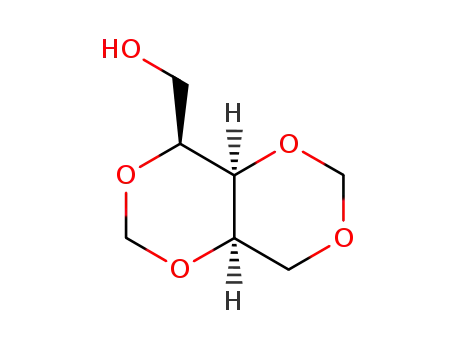
DL-O1,O3;O2,O4-dimethanediyl-xylitol
-
119248-59-8
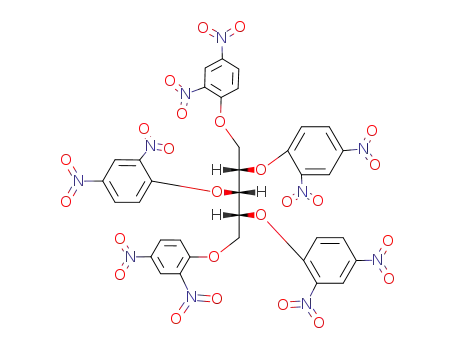
pentakis-O-(2,4-dinitro-phenyl)-xylitol
-
903637-88-7

4,5-Bis-(phenyl-hydrazono)-pentane-1,2,3-triol
Relevant Products
-
Malic acid
CAS:6915-15-7
-
maltitol
CAS:585-88-6
-
MCP
CAS:7758-23-8

